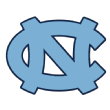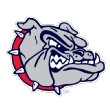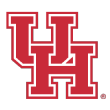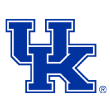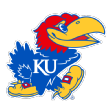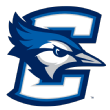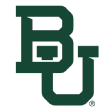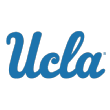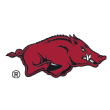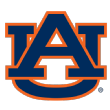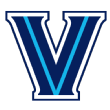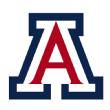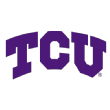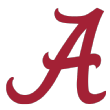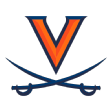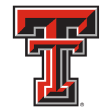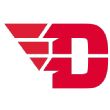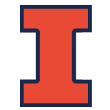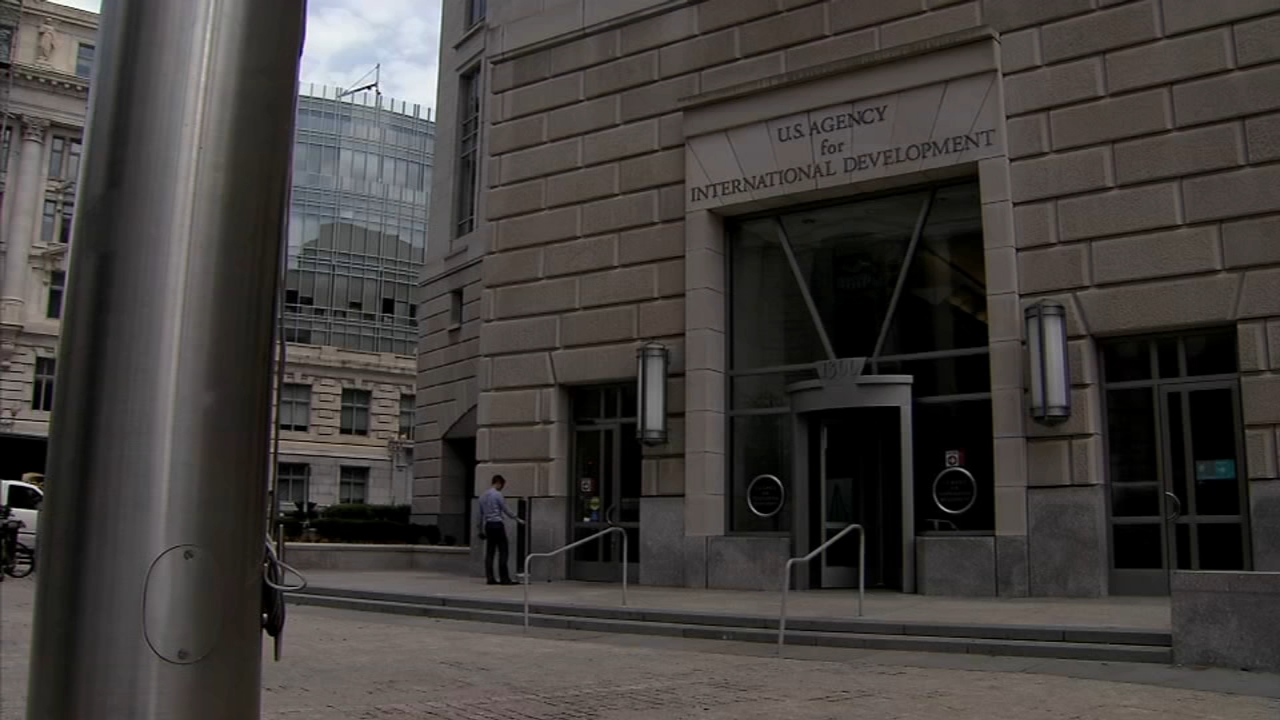Duke and Kansas rise in Way-Too-Early Top 25 men's college basketball rankings for 2022-23

After a whirlwind few months that saw thousands of players enter the transfer portal and hundreds enter the NBA draft, we finally have some roster stability across the men's college basketball landscape. The coaching carousel has long since stopped, the NBA draft is in the rearview mirror and the transfer portal has slowed down. Barring any surprises, the majority of rosters come early November are going to look very similar to how they look today, in late June.
Sure, there will still be additions and subtractions. There are a few international prospects expected to make the move to the U.S. in the coming weeks, and there are always a few unexpected reclassifications come August. But with Pete Nance (North Carolina) and Emmanuel Akot (Memphis) announcing their college decisions two weekends ago, only two players remain in ESPN's transfer rankings: Emoni Batesand Keyontae Johnson.
Since the last Way-Too-Early Top 25 rankings update, there have been two big movers: Gonzaga and Oregon. The Zags rose all the way to No. 2 after the NBA draft withdrawals of Drew Timme, Julian Strawther and Rasir Boltonand the addition of Chattanooga transfer Malachi Smith. They make a strong case for the No. 1 spot, but North Carolina adding Nance gives the Tar Heels the edge. Meanwhile, Will Richardson announced he was returning to Oregon, pushing the Ducks from unranked to inside the top 20.
On the flipside, the big faller was Michigan, which dropped out of the rankings from No. 20. The Wolverines saw Caleb Houstan and Moussa Diabate keep their names in the NBA draft; combined with concerns about firepower on the wings, it was just enough to keep Michigan on the outside looking in.
1. North Carolina Tar Heels
Previous: 1
While I initially moved the Tar Heels to No. 1 after the returns of Caleb Love, R.J. Davis, Leaky Black and, in particular, Armando Bacot,the program cemented the position with the addition of Northwestern transfer Pete Nance. Nance was a top-10 transfer all spring and the best available player in the portal when he committed to Hubert Davis' squad. He initially entered the draft but withdrew his name and visited Chapel Hill before announcing his decision.
Nance will fill the role vacated by Brady Manek. He's 6-foot-10, but shot 45.2% from 3-point range and averaged 14.6 points, 6.5 rebounds and 2.7 assists. The Tar Heels had other options at the power forward spot -- Puff Johnson, Dontrez Styles -- but Nance is a proven high-major contributor with size and shooting ability.
Projected starting lineup:
Caleb Love (15.2 PPG)
R.J. Davis (13.4 PPG)
Leaky Black (4.9 PPG)
Pete Nance (14.6 PPG)
Armando Bacot (16.5 PPG)
2. Gonzaga Bulldogs
Previous: 6
Toward the end of May and the beginning of June, the good news kept piling on for the Zags. Three players withdrew their names from the NBA draft, including potential Wooden Award candidate Drew Timme. Joining Timme in heading back to Spokane, Washington, were starters Julian Strawther and Rasir Bolton, with the latter opting to use his extra year of eligibility.
Having those three back in the fold would have been enough to push Gonzaga into the preseason No. 1 conversation, but coach Mark Few then went out and landed Chattanooga transfer Malachi Smith, the Southern Conference Player of the Year. Smith averaged 19.9 points, 6.7 rebounds and 3.0 assists last season and was considered a top-five transfer. With former five-star recruits Hunter Sallis and Efton Reid as well as veteran forward Anton Watson potentially coming off the bench, the Zags have as much talent and depth as anyone in the country. Again.
Projected starting lineup:
Nolan Hickman (5.1 PPG)
Malachi Smith (19.9 PPG at Chattanooga)
Rasir Bolton (11.2 PPG)
Julian Strawther (11.8 PPG)
Drew Timme (18.4 PPG)
3. Houston Cougars
Previous: 2
Once Marcus Sasser removed his name from the draft, Houston solidified its spot as a legitimate national championship contender. Sasser boosted his pro stock during the spring and was a borderline second-round pick according to most mocks, but he opted to withdraw and return to the Cougars. When healthy, the 6-2 guard is one of the best scorers in the country and the type of player who can carry Houston on the offensive end.
Next season, he shouldn't have to shoulder an overwhelming amount thanks to the potential breakout of Jamal Shead and the additions of freshmen Jarace Walker and Terrance Arceneaux. While Houston survived injuries to Sasser and Tramon Mark last season, coach Kelvin Sampson also shored up his backcourt depth with the signing of Texas Tech transfer Mylik Wilson.
Projected starting lineup:
Jamal Shead (10.0 PPG)
Marcus Sasser (17.7 PPG)
Tramon Mark (10.1 PPG)
Jarace Walker (No. 10 in ESPN 100)
J'Wan Roberts (3.2 PPG)
4. Kentucky Wildcats
Previous: 3
One of the more intriguing storylines entering next season for the Wildcats involves Jacob Toppinand whether he is poised for a breakout season. Toppin has shown flashes of his ceiling -- 16 points against Vanderbilt in 2021, 14 and eight against LSU, and 13 and six against Alabama last season -- but has not yet produced consistently enough to be a surefire starter. He has elite physical skills, though, and in the two games last season in which he played more than 30 minutes, he averaged 10.5 points and 6.0 rebounds. Granted, it was just the two, but he didn't look out of place.
Whether he takes the next step could determine how John Calipari's lineup looks in 2022-23. Five-star recruit Chris Livingston is more of an offensive threat and has good size at 6-7, while Illinois State transfer Antonio Reeves and CJ Fredrick provide shooting ability in a potentially smaller lineup.
Projected starting lineup:
Sahvir Wheeler (10.1 PPG)
Cason Wallace (No. 20 in ESPN 100)
Antonio Reeves (20.1 PPG at Illinois State)
Chris Livingston (No. 12 in ESPN 100)
Oscar Tshiebwe (17.4 PPG)
5. Duke Blue Devils
Previous: 9
The biggest questions I had about Duke in the latest update were about a lack of perimeter shooting and experience, mixed with some backcourt depth issues. Coach Jon Scheyer went out and answered those in the past few weeks. First, five-star guard Tyrese Proctor opted to reclassify from 2023 to 2022 and suit up for the Blue Devils next season. The 6-5 Australia product can play either guard spot and should help the shooting issues; he shot 43.8% from 3 with the NBA Global Academy in 2021 and 37% from 3 with New South Wales U20 in 2022.
Illinois transfer Jacob Grandison then committed to Duke, and he could start right away. He's 24 years old with four years of college experience, and he shot 41% from 3 last season. There are still some questions as to how Scheyer makes all the pieces fit, but the roster has become much more well rounded in the past few weeks.
Projected starting lineup:
Jeremy Roach (8.6 PPG)
Dariq Whitehead (No. 2 in ESPN 100)
Jacob Grandison (9.6 PPG at Illinois)
Kyle Filipowski (No. 7 in ESPN 100)
Dereck Lively (No. 1 in ESPN 100)
6. Kansas Jayhawks
Previous: 10
Getting Jalen Wilson back from the NBA draft -- after he boosted his draft stock during pre-deadline workouts -- and landing Texas Tech transfer Kevin McCullar put the Jayhawks back in the conversation to get to another Final Four. Wilson should become the team's go-to guy on the offensive end with Ochai Agbaji and Christian Braun out of the picture, while McCullar is a high-level two-way player who has experience in the league. Those two, plus five-star guard Gradey Dick and returning starter Dajuan Harris Jr.,should be mainstays in Bill Self's lineup from day one.
Who will emerge as the Jayhawks' fifth starter? Five-star recruit Ernest Udeh could start at the five, as could rising sophomores Zach Clemence or K.J. Adams, who each saw spot minutes last season. There's also some offseason hype for Bobby Pettiford, but that might be too small of a lineup.
Projected starting lineup:
Dajuan Harris Jr. (5.4 PPG)
Gradey Dick (No. 14 in ESPN 100)
Kevin McCullar (10.1 PPG at Texas Tech)
Jalen Wilson (11.0 PPG)
Ernest Udeh (No. 23 in ESPN 100)
7. Creighton Bluejays
Previous: 5
On paper, offense wouldn't appear to be an issue for Creighton next season. The Bluejays bring back three double-figure scorers, add one of the best offensive players in the country via the transfer portal in Baylor Scheierman, and also get Mason Miller off of a redshirt season. At the same time, this is a team that loses two double-figure scorers from a group that finished No. 112 nationally in adjusted offensive efficiency, according to KenPom.com.
A step forward from potential draft pick Arthur Kaluma will be a boost, as will the addition of Scheierman. Will that impact the team's defense, a group that finished first in the Big East and inside the top 20 nationally, according to KenPom? It shouldn't. South Dakota State was poor defensively, but Scheierman is a very good defensive rebounder, and some of his weaknesses can be hidden playing alongside Kaluma and Big East Defensive Player of the Year Ryan Kalkbrenner.
Projected starting lineup:
Ryan Nembhard (11.3 PPG)
Trey Alexander (7.4 PPG)
Baylor Scheierman (16.2 PPG at South Dakota State)
Arthur Kaluma (10.4 PPG)
Ryan Kalkbrenner (13.1 PPG)
8. Baylor Bears
Previous: 7
Scott Drew should have one of the best backcourts in the country next season, with Adam Flagler and a healthy LJ Cryer returning and top-10 prospect Keyonte George stepping into a starting spot right away. Providing depth will be Langston Love, a former top-30 recruit who missed all of last season after suffering an ACL injury in a preseason scrimmage.
But what about the frontcourt? If Jonathan Tchamwa Tchatchoua was guaranteed to be healthy, I could make a case for Baylor being inside the top five. But it's still unclear when he will return from the season-ending left knee injury he suffered in February. That leaves returning starter Flo Thamba at the center spot and a battle between transfers Jalen Bridges (West Virginia) and Caleb Lohner (BYU) next to him. Bridges is capable of becoming a consistently impactful player, and he could be the key to Baylor's hopes.
Projected starting lineup:
Keyonte George (No. 6 in ESPN 100)
Adam Flagler (13.8 PPG)
LJ Cryer (13.5 PPG)
Jalen Bridges (8.4 PPG at West Virginia)
Flo Thamba (6.2 PPG)
9. UCLA Bruins
Previous: 4
UCLA falls a couple of spots after Jules Bernard kept his name in the draft as the withdrawal deadline passed. Bernard was a key player, if perhaps underrated, during his time in Westwood. He averaged double figures each of the past two seasons while making better than 35% of his career 3s.
Coach Mick Cronin shouldn't lose too much sleep over figuring out which player will replace Bernard in the starting lineup, however. Jaylen Clark is a ready-made replacement. He's a terrific defender, and while his role fluctuated throughout last season, he proved he could produce when given starter's minutes. In fact, as mentioned in last month's update, Clark averaged 14.2 points and 6.0 rebounds in six starts last season. He's not the shooter Bernard is -- and UCLA's shooting in general is a question -- but he should slot in immediately.
Projected starting lineup:
Tyger Campbell (11.9 PPG)
Amari Bailey (No. 5 in ESPN 100)
Jaylen Clark (6.7 PPG)
Jaime Jaquez Jr. (13.9 PPG)
Adem Bona (No. 16 in ESPN 100)
10. Arkansas Razorbacks
Previous: 8
It was less than three months ago that we pegged Arkansas as the initial No. 1 team in the Way-Too-Early Top 25 rankings. But that was before JD Notae, Au'Diese Toney and Jaylin Williams opted to leave Fayetteville, and so the Razorbacks are now settled around No. 10. Coach Eric Musselman prepared for the potential loss of Williams by landing four frontcourt players in the portal, including brothersMakhel and Makhi Mitchell from Rhode Island. It wouldn't be a surprise to see one of them start in early November.
But Missouri transfer Trevon Brazile has NBA potential, and his physical skills and shot-blocking ability could allow the Razorbacks to play smaller and use him up front. Another option is Arizona State transfer Jalen Graham, an All-Pac-12 selection who was terrific over the final two months of last season.
Projected starting lineup:
Anthony Black (No. 15 in ESPN 100)
Nick Smith (No. 3 in ESPN 100)
Ricky Council IV (12.0 PPG at Wichita State)
Jordan Walsh (No. 11 in ESPN 100)
Makhel Mitchell (10.7 PPG at Rhode Island)
11. Texas Longhorns
Previous: 11
Next season, Chris Beard should have as explosive a backcourt as he has ever had -- but he will need to figure out how to make everyone coexist, while also finding some consistent perimeter shooting. Iowa State transfer Tyrese Hunter was one of the best players in the portal all spring, but he and Marcus Carr are both used to having the ball in their hands. Given Carr's superior shooting ability, we could see him off the ball more than Hunter. Incoming five-star freshman Arterio Morris is also better as the focal point of an offense, with his ability to take on defenders and get into the lane. Top-five recruit Dillon Mitchell is a truly elite player and a future lottery pick, but he took five 3s in 13 games on the Nike EYBL circuit last summer and two 3s in 10 games with Montverde Academy at the NIBC during the school season. There's also Sir'Jabari Rice (career 33.4% 3-point shooter) and freshman Rowan Brumbaugh.
Projected starting lineup:
Tyrese Hunter (11.0 PPG at Iowa State)
Marcus Carr (11.4 PPG)
Dillon Mitchell (No. 4 in ESPN 100)
Timmy Allen (12.1 PPG)
Christian Bishop (7.0 PPG)
12. Auburn Tigers
Previous: 12
Wendell Green Jr. and K.D. Johnson have been the subject of much debate so far this spring. Both were prone to inconsistency and subpar decision-making last season, but they were also the two primary playmakers for a team that won the SEC regular-season title and earned a 2-seed in the NCAA tournament. Next year, however, the Tigers won't have No. 1 pick Jabari Smith or Defensive Player of the Year Walker Kessler to potentially bail them out. They, along with starting point guard Zep Jasper, will have to be far more efficient.
That said, few teams in the country have a guard duo with as much explosiveness as the Tigers'. Despite coming off the bench in all but five games, Green had 12 outings with at least 15 points and seven with at least seven assists. Johnson, meanwhile, is uber-aggressive at both ends of the floor and scored at least 15 points on 11 occasions. More shots are coming their way, too.
Projected starting lineup:
Wendell Green Jr. (12.0 PPG)
K.D. Johnson (12.3 PPG)
Allen Flanigan (6.3 PPG)
Yohan Traore (No. 27 in ESPN 100)
Johni Broome (16.8 PPG at Morehead State)
13. Tennessee Volunteers
Previous: 13
May was a huge month for Rick Barnes' program with the additions of recruits Julian Phillips and D.J. Jefferson and the return of first-team All-SEC guard Santiago Vescovi. But the arrival of Phillips could be the real game-changer for the Volunteers next season. He is Tennessee's sixth five-star recruit in the past four classes and is projected to be a borderline lottery pick in ESPN's most recent 2023 mock draft. Phillips is long, versatile and a capable jump-shooter from different areas in the half court. He still has room to grow at both ends of the floor, but he has the potential to be a go-to guy for the Volunteers next season. Without Kennedy Chandler, Tennessee might be less dynamic at the point of attack, but Phillips, Vescovi and Josiah-Jordan James provide plenty of versatility.
Projected starting lineup:
Zakai Zeigler (8.8 PPG)
Santiago Vescovi (13.3 PPG)
Julian Phillips (No. 13 in ESPN 100)
Josiah-Jordan James (10.3 PPG)
Olivier Nkamhoua (8.6 PPG)
14. Villanova Wildcats
Previous: 16
Villanova didn't have many surprising roster changes this offseason -- just the one coaching change, of course -- but did have two players dramatically increase their preseason hype because of their performances in the FIBA U18 Americas Championship.
Cameron Whitmore developed into a five-star prospect over the past year, and he backed that up by leading the USA to a 6-0 record and a gold medal. He averaged 18.7 points and 6.7 rebounds while shooting 63% from the field and 45% from 3-point range. Whitmore's skill set and physicality stood out when I watched him last summer, but the outside touch is great to see. I also thought Mark Armstrong was underrated on the grassroots circuit last July, and he was an adept playmaker for the USA, finishing fifth in scoring (10.7 PPG) and second in assists (3.8 APG). Could he push to start from day one for new head coach Kyle Neptune?
Projected starting lineup:
Mark Armstrong (No. 61 in ESPN 100)
Caleb Daniels (10.2 PPG)
Brandon Slater (8.3 PPG)
Cameron Whitmore (No. 21 in ESPN 100)
Eric Dixon (9.1 PPG)
15. Indiana Hoosiers
Previous: 14
Trayce Jackson-Davis' return to the Hoosiers locks them in as the preseason Big Ten favorite. But they will have to improve their perimeter shooting. Indiana ranked second worst in the league last season in 3-point shooting, making just 31.9% of its attempts in conference play, as well as in 3-point attempt volume and percentage of points from 3s. That's not going to cut it, even in a down Big Ten. Oh, and the team's most prolific 3-point shooter, Parker Stewart, transferred out.
But coach Mike Woodson has options. Tamar Bates, a top-25 recruit in the 2021 class, wasn't known as a knockdown shooter coming out of high school, and five-star recruit Jalen Hood-Schifino has never been a consistent outside shooter, but a breakout season from either will boost Indiana's perimeter production as a whole. Can someone step up and make some outside shots, though?
Projected starting lineup:
Xavier Johnson (12.1 PPG)
Jalen Hood-Schifino (No. 24 in ESPN 100)
Miller Kopp (6.0 PPG)
Race Thompson (11.1 PPG)
Trayce Jackson-Davis (18.3 PPG)
16. Arizona Wildcats
Previous: 18
Arizona wasn't overly active in the early spring market, likely because it was waiting on a final decision from Dalen Terry. (There was much less uncertainty surrounding Bennedict Mathurin's and Christian Koloko's NBA draft statuses.) As the draft process progressed, however, it became clear Terry was a likely first-rounder and therefore was likely to keep his name in the draft. So coach Tommy Lloyd hit the portal for guards and came out with Courtney Ramey and Cedric Henderson Jr.
Ramey started more than 100 games at Texas over four years, while Henderson was an all-conference performer at Campbell. He brings size and shooting ability. Those two arrive on top of the addition of Henri Veesaar, a 7-footer from Estonia considered the best international prospect heading to college next season.
Projected starting lineup:
Kerr Kriisa (9.7 PPG)
Pelle Larsson (7.2 PPG)
Courtney Ramey (9.4 PPG at Texas)
Azuolas Tubelis (13.9 PPG)
Oumar Ballo (6.8 PPG)
17. TCU Horned Frogs
Previous: 15
Coach Jamie Dixon brings back nearly every key player from last season's team, including all five starters -- and he replaces the lone departing rotation player, Francisco Farabello, with Oklahoma State transfer Rondel Walker and four-star recruit P.J. Haggerty. So the Horned Frogs, with more experience and more backcourt depth, should pick up where they left off last season.
But consistency will be the theme for TCU in 2022-23. This is a team that beat Kansas, Texas Tech, Texas, LSU, Iowa State and took Arizona to overtime in the NCAA tournament before losing. But it's also a group that dropped games to West Virginia, Kansas State and Santa Clara, and never won more than two games in a row in the final three months of 2021-22. Three key areas with room for improvement: turnovers, 3-point shooting and free throw shooting. They ranked near the bottom of Division I in all three categories.
Projected starting lineup:
Mike Miles (15.4 PPG)
Damion Baugh (10.6 PPG)
Chuck O'Bannon Jr. (9.5 PPG)
Emanuel Miller (10.3 PPG)
Eddie Lampkin (6.8 PPG)
18. Oregon Ducks
Previous: Unranked
Oregon has one of the biggest rises in this month's update, thanks to the deadline-day return of Will Richardson. One of the smoothest guards in the country, Richardson has continued to make strides every season in college, and he will get to shoulder even more of the scoring load next season with Jacob Young and De'Vion Harmon gone. Coach Dana Altman did lose top-50 guard Dior Johnson, who reopened his recruitment and ended up at Pittsburgh.
The Ducks are in fine shape on the perimeter regardless, with high-major veterans Keeshawn Barthelemy (Colorado) and Jermaine Couisnard (South Carolina) joining Richardson in the backcourt. Oregon rarely found any consistency last season, but Altman has upgraded the talent, and he has a potential lottery pick in Kel'el Ware.
Projected starting lineup:
Will Richardson (14.1 PPG)
Keeshawn Barthelemy (11.1 PPG at Colorado)
Quincy Guerrier (10.1 PPG)
Kel'el Ware (No. 8 in ESPN 100)
N'Faly Dante (8.1 PPG)
19. Alabama Crimson Tide
Previous: 17
In an ideal world, Jahvon Quinerly would be fully recovered from the torn ACL he suffered in the NCAA tournament by the time SEC play rolls around, and Alabama will have one of the deepest and most talented backcourts in the country. We'll have to wait and see. But coach Nate Oats has point guard options either way. Mark Sears is the veteran. The Ohio transfer averaged 19.6 points, 6.0 rebounds and 4.1 assists last season, shooting better than 40% from 3. Jaden Bradley is the five-star freshman. He is physical with the ball in his hands and loves getting into the lane and finishing at the rim or finding an open teammate. From the outside looking in, both players are likely to start in the backcourt immediately and will give Oats a guard tandem that can do a little bit of everything.
Projected starting lineup:
Mark Sears (19.6 PPG at Ohio)
Jaden Bradley (No. 19 in ESPN 100)
Dominick Welch (12.3 PPG at St. Bonaventure)
Brandon Miller (No. 9 in ESPN 100)
Charles Bediako (6.7 PPG)
20. Virginia Cavaliers
Previous: 21
While Virginia's defense needs to return to its customary form under Tony Bennett -- it ranked outside the top 35 in adjusted defensive efficiency for the past two seasons, after ranking inside the top seven in eight of the nine seasons before that -- the breadth and depth of weapons at his disposal on the offensive end next season will not be in question. Jayden Gardner has been a consistent scorer for four years, Armaan Franklin is a proven high-major double-figure scorer and Kihei Clark has made big shots in his career. But now Bennett will also have all-MAC forward Ben Vander Plas, a proficient inside-outside scorer, and a freshman class that includes a high-level shooter in Isaac McKneely, an aggressive penetrator in Leon Bond and a 6-10 big man who can stretch the defense in Isaac Traudt.
Projected starting lineup:
Kihei Clark (10.0 PPG)
Reece Beekman (8.2 PPG)
Armaan Franklin (11.1 PPG)
Jayden Gardner (15.3 PPG)
Kadin Shedrick (6.9 PPG)
21. San Diego State Aztecs
Previous: 19
San Diego State has ranked outside the top 30 nationally in adjusted defensive efficiency just twice in the past 12 seasons, and with the return of Nathan Mensah and the addition of Micah Parrish, the Aztecs are likely to be closer to last year's No. 2 national ranking.
But what about the offense? Brian Dutcher's team was in the bottom half of the Mountain West in adjusted offensive efficiency in conference play, with a low volume of 3-point attempts and a league-worst 47.2% field goal percentage inside the arc. Matt Bradley is back to shoulder the load, but the Aztecs have now improved his supporting cast. Darrion Trammell, a two-time first-team All-WAC selection, averaged 20.5 points in 2020-21 and 17.3 points last season at Seattle; Parrish was a double-figure scorer at Oakland; and early buzz on Jaedon LeDee, who sat out last season, has been positive.
Projected starting lineup:
Lamont Butler (7.3 PPG)
Darrion Trammell (17.3 PPG at Seattle)
Matt Bradley (16.9 PPG)
Keshad Johnson (7.2 PPG)
Nathan Mensah (7.0 PPG)
22. Texas Tech Red Raiders
Previous: 22
Texas Tech has slowly climbed up the rankings as the offseason has progressed, consistently adding pieces to the puzzle in Lubbock. The last two pickups were five-star recruit Elijah Fisher, who opted to reclassify from 2023 into 2022, and North Carolina transfer Kerwin Walton. We mentioned Fisher in the last rankings update, but he further impressed onlookers at the FIBA U18 Americas Championship in recent weeks. He averaged 13.3 points, 5.5 rebounds and 2.7 assists, while shooting better than 55% inside the arc. It wouldn't be a surprise if he pushed for a starting spot. Walton played in 60 games over two seasons for the Tar Heels, making 40% of his 3-point attempts. He averaged 8.2 points in 2020-21, starting 20 games, but saw his role essentially disappear this past season. His shooting will be a big boost for coach Mark Adams.
Projected starting lineup:
De'Vion Harmon (10.8 PPG at Oregon)
Kerwin Walton (3.4 PPG at North Carolina)
Elijah Fisher (five-star)
Kevin Obanor (10.0 PPG)
Fardaws Aimaq (18.9 PPG at Utah Valley)
23. Dayton Flyers
Previous: 23
There might not have been a more underrated inside-outside duo in the country last season -- especially one consisting of two freshmen -- than that of Malachi Smith and DaRon Holmes II. Smith was an impact player at both ends of the floor, and if he hadn't been injured in the final seconds of the first half against Richmond in the Atlantic 10 tournament, Dayton might be coming off an NCAA tournament appearance. In addition to his aggressiveness defensively, he was a high-level playmaker with the ball in his hands, averaging 7.0 assists in his final nine full games last season. Holmes has the look of a future pro. He was the Rookie of the Year in the Atlantic 10, while also earning second-team all-league and all-defensive team honors. He averaged 20.0 points, 6.0 rebounds and 2.0 blocks in the final five games of the season.
Projected starting lineup:
Malachi Smith (9.3 PPG)
Kobe Elvis (8.9 PPG)
R.J. Blakney (6.5 PPG)
Toumani Camara (10.9 PPG)
DaRon Holmes II (12.8 PPG)
24. UConn Huskies
Previous: 24
UConn continued its perimeter overhaul by adding San Diego transfer Joey Calcaterra earlier this month. Calcaterra isn't likely to push for a starting spot, but he should provide depth. He averaged 13.3 points in 2020-21 and 11.4 points in 2019-20, shooting nearly 36% from 3 and starting 70 games in four seasons for the Toreros.
Calcaterra is the fourth guard transfer coach Dan Hurley landed this spring, following Tristen Newton (East Carolina), Nahiem Alleyne (Virginia Tech) and Hassan Diarra (Texas A&M). A breakout season from rising sophomore Jordan Hawkins is the biggest reason for optimism, though. He generated positive buzz last preseason and had 16 points in November against Auburn, then couldn't find consistency the rest of the way -- although, to be fair, he battled multiple injuries.
Projected starting lineup:
Tristen Newton (17.7 PPG at East Carolina)
Jordan Hawkins (5.8 PPG)
Nahiem Alleyne (9.6 PPG at Virginia Tech)
Andre Jackson (6.8 PPG)
Adama Sanogo (14.8 PPG)
25. Illinois Fighting Illini
Previous: 25
Had Jacob Grandison stuck around in Champaign, I probably would have had the Fighting Illini six or seven spots higher in the rankings. More importantly, his return would have almost forced Brad Underwood to play smaller lineups next season. Dain Dainja, who sat out the second half of the season after transferring from Baylor, is a replacement for Kofi Cockburn, but the plethora of wings and forwards should still allow Illinois to go smaller and more versatile up front. Even without Grandison, there's a strong case to be made that Coleman Hawkins is better suited at the center spot, Matthew Mayer is more effective as a mobile stretch-4 and RJ Melendez and four-star recruit Ty Rodgers can battle for the fifth starting spot -- Melendez has some positive spring buzz, and Rodgers played for the USA U18 team earlier this month.Underwood also added French big man Zacharie Perrin on Tuesday, a 6-foot-11 paint presence who put up big numbers for the French U18 team last summer.
Projected starting lineup:
Skyy Clark (No. 25 in ESPN 100)
RJ Melendez (3.8 PPG)
Terrence Shannon Jr. (10.4 PPG at Texas Tech)
Matthew Mayer (9.8 at Baylor)
Coleman Hawkins (5.9 PPG)
Dropped out: Michigan Wolverines (No. 20)
Next in line:
Michigan Wolverines (previous: No. 20)
Miami Hurricanes (previous: Next in line)
Saint Louis Billikens (previous: Next in line)
Xavier Musketeers (previous: Next in line)
Ohio State Buckeyes (previous: Next in line)
Related Video
Related Topics
- SPORTS
- ESPN
- TCU HORNED-FROGS
- OREGON DUCKS
- KANSAS JAYHAWKS
- DUKE BLUE-DEVILS
- GONZAGA BULLDOGS
- ILLINOIS FIGHTING-ILLINI
- ARIZONA WILDCATS
- TEXAS LONGHORNS
- XAVIER MUSKETEERS
- AUBURN TIGERS
- CREIGHTON BLUEJAYS
- VIRGINIA CAVALIERS
- SAN DIEGO-STATE-AZTECS
- TEXAS TECH-RED-RAIDERS
- DAYTON FLYERS
- UCONN HUSKIES
- MIAMI HURRICANES
- BAYLOR BEARS
- INDIANA HOOSIERS
- HOUSTON COUGARS
- OHIO STATE-BUCKEYES
- VILLANOVA WILDCATS
- KENTUCKY WILDCATS
- LIST
- MENS COLLEGE-BASKETBALL
- SAINT LOUIS-BILLIKENS
- NORTH CAROLINA-TAR-HEELS
- ARKANSAS RAZORBACKS
- ALABAMA CRIMSON-TIDE
- TENNESSEE VOLUNTEERS
- UCLA BRUINS
- MICHIGAN WOLVERINES


